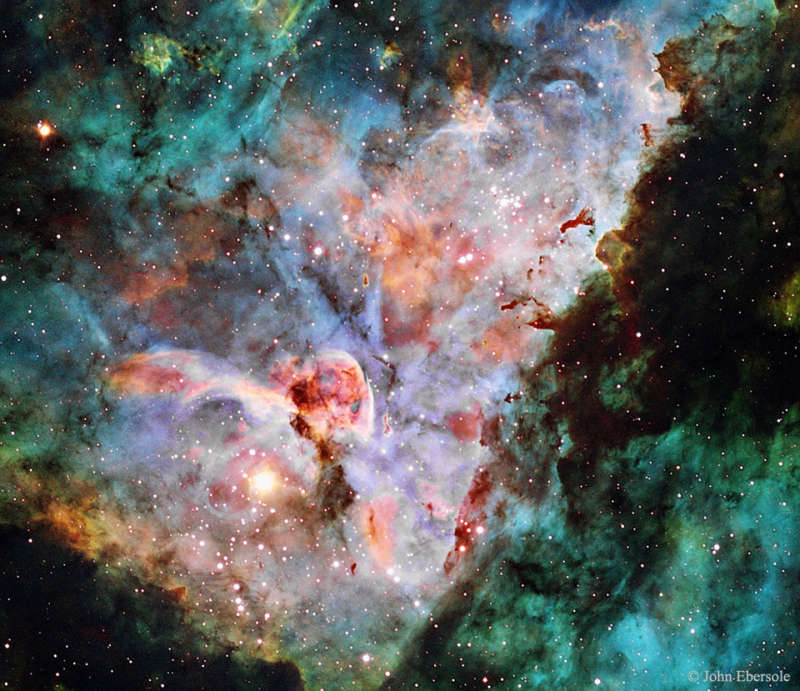
|
Credit & Copyright: John Ebersole
Explanation:
What forms lurk in the mists of the Carina Nebula?
The dark ominous figures are actually
molecular clouds,
knots of molecular gas and
dust so thick they have become
opaque.
In comparison, however,
these clouds are typically
much less dense than
Earth's atmosphere.
Featured here is a detailed image of the core of the
Carina Nebula, a part where both dark and colorful
clouds of gas and dust are particularly prominent.
The image was captured in mid-2016 from
Siding Spring Observatory in
Australia.
Although the nebula is predominantly composed of
hydrogen gas -- here colored green,
the image was assigned colors so that light emitted by trace amounts of
sulfur and
oxygen
appear red and blue, respectively.
The entire
Carina Nebula,
cataloged as NGC 3372, spans over 300
light years
and lies about 7,500 light-years away in the
constellation of Carina.
Eta Carinae,
the most energetic star in the nebula,
was one of the brightest stars in the sky in the 1830s, but then
faded dramatically.
|
January February March April May June July August September October November December |
| |||||||||||||||||||||||||||||||||||||||||||||||||||||||
NASA Web Site Statements, Warnings, and Disclaimers
NASA Official: Jay Norris. Specific rights apply.
A service of: LHEA at NASA / GSFC
& Michigan Tech. U.
Based on Astronomy Picture
Of the Day
Publications with keywords: carina nebula
Publications with words: carina nebula
See also:
